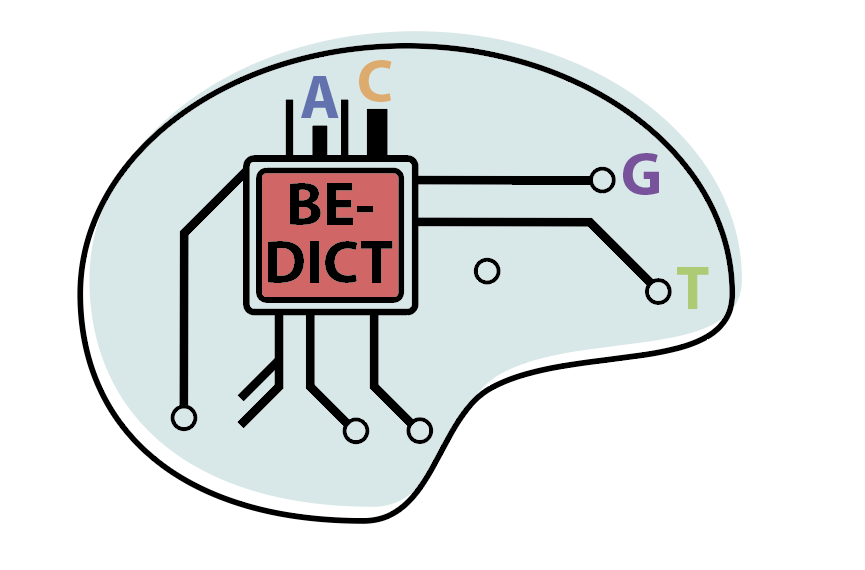Repository containing python packages for running BE-DICT models. There are two packages:
criscasfor instantiatingper-basemodel andhaplotypefor instantiatingbystandermodel.
For more info about this research, see our preprint on biorxiv.
git clonethe repo andcdinto it.- Run
pip install -e .to install the repo's python package.
The easiest way to install and manage Python packages on various OS platforms is through Anaconda. Once installed, any package (even if not available on Anaconda channel) could be installed using pip.
-
Install Anaconda.
-
git clonethe repo andcdinto it. -
Start a terminal and run
# create an environment conda create --name bedict_crispr # activate the created environment (bedict_crispr) conda activate bedict_crispr # install anaconda conda install -c anaconda python=3.7 # update all installed packages conda update -y --all # install pytorch # Note cudatoolkit version depends on the version installed on your device # if there is no GPU run this command # conda install pytorch torchvision -c pytorch # see https://pytorch.org/ conda install pytorch torchvision cudatoolkit=10.1 -c pytorch conda clean -ya # install criscas package (this package) pip install -e .
-
After that we are ready to use the package with the trained
BE-DICTmodels for base editing prediction.
We provide two notebooks that illustrate the use of BE-DICT (perbase) and (bystander) models under demo folder:
The models were trained, tested and ran on Linux machine Ubuntu 18.04.3 LTS with one Tesla P4 GPU support.
The version of the required packages used in setup.py were:
numpy>='1.18.1'scipy>='1.4.1'pandas>='1.0.1'scikit-learn>='0.22.1'torch>='1.7.1'cudatoolkit=10.1
matplotlib>='3.1.3'seaborn>='0.10.0'prettytable>='2.0.0'tqdm>='4.56.2'
A running instance supporting both models BE-DICT (perbase) & BE-DICT (bystander) can be accessed at this link.
If you find our work is useful in your research, please cite the following paper:
@article {Marquart2020.07.05.186544,
author = {Marquart, Kim F. and Allam, Ahmed and Janjuha, Sharan and Sintsova, Anna and Villiger, Lukas and Frey, Nina and Krauthammer, Michael and Schwank, Gerald},
title = {Predicting base editing outcomes with an attention-based deep learning algorithm trained on high-throughput target library screens},
elocation-id = {2020.07.05.186544},
year = {2020},
doi = {10.1101/2020.07.05.186544},
URL = {https://www.biorxiv.org/content/early/2020/07/05/2020.07.05.186544},
eprint = {https://www.biorxiv.org/content/early/2020/07/05/2020.07.05.186544.full.pdf},
journal = {bioRxiv}
}
